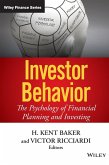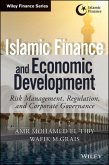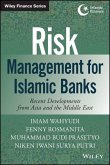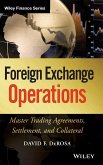How the Islamic finance approach to risk can serve as a model for global reform
The recent U.S. financial debacle has affected the entire world and led to major reviews of risk management in financial institutions. Perhaps a simpler alternative is just to adopt the systems used for centuries in Islamic finance. Risk Sharing in Finance expounds upon this novel idea, suggesting that the Islamic financial system can be developed for use around the world by providing a helpful paradigm for crafting global financial reforms.
Demonstrating how Islamic finance can successfully expand its array of risk sharing instruments, for example issuing government shares to finance development projects and placing limits on short sales and leveraging, the book makes a compelling case for thinking outside the box to redevelop a vibrant stock market.
Provides analysis of the comparative historical, theoretical, and empirical investigation of risk management in both the conventional and the Islamic-type financial systems
Explores the benefits and the implications of introducing Islamic finance around the world and explains how wider reliance on risk sharing can be implemented
Establishes a connection between the flawed contemporary Western system of capitalist finance and the ancient, traditional forms of risk-sharing prevalent in Islamic finance
Offering a timely look at financial reform, Risk Sharing in Finance draws on the expertise of author Zamir Iqbal of the World Bank, along with a host of co-authors Abbas Mirakhor, Hossein Askari, and Noureddine Krichene to present a new form of financial reform.
Hinweis: Dieser Artikel kann nur an eine deutsche Lieferadresse ausgeliefert werden.
The recent U.S. financial debacle has affected the entire world and led to major reviews of risk management in financial institutions. Perhaps a simpler alternative is just to adopt the systems used for centuries in Islamic finance. Risk Sharing in Finance expounds upon this novel idea, suggesting that the Islamic financial system can be developed for use around the world by providing a helpful paradigm for crafting global financial reforms.
Demonstrating how Islamic finance can successfully expand its array of risk sharing instruments, for example issuing government shares to finance development projects and placing limits on short sales and leveraging, the book makes a compelling case for thinking outside the box to redevelop a vibrant stock market.
Provides analysis of the comparative historical, theoretical, and empirical investigation of risk management in both the conventional and the Islamic-type financial systems
Explores the benefits and the implications of introducing Islamic finance around the world and explains how wider reliance on risk sharing can be implemented
Establishes a connection between the flawed contemporary Western system of capitalist finance and the ancient, traditional forms of risk-sharing prevalent in Islamic finance
Offering a timely look at financial reform, Risk Sharing in Finance draws on the expertise of author Zamir Iqbal of the World Bank, along with a host of co-authors Abbas Mirakhor, Hossein Askari, and Noureddine Krichene to present a new form of financial reform.
Hinweis: Dieser Artikel kann nur an eine deutsche Lieferadresse ausgeliefert werden.








